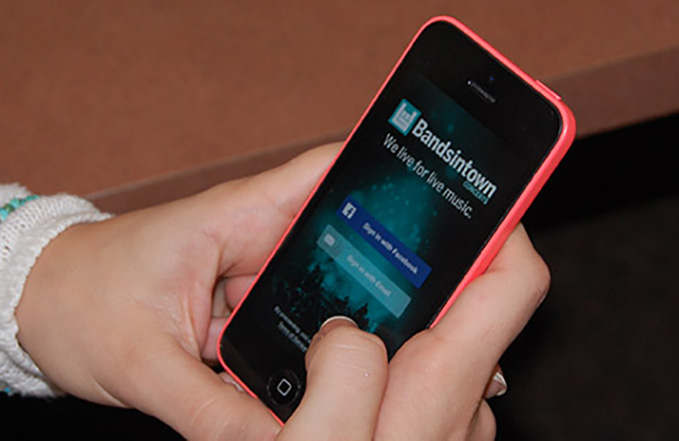Megann Horstead
Content Producer
Today’s music is becoming more and more accessible by means of online streaming services—YouTube, Spotify, Soundcloud—and free digital download websites. But with its growing popularity, there are also reasons to have raised brows.
Students at North Central College are no exception when it comes to putting online streaming services to use but also recognizing the drawbacks.
Sophomore Karina Reitz prefers online streaming but also recognizes its drawbacks.
“It gets pretty costly when you buy music online especially with how easily you can purchase music,” Reitz said. “I don’t realize how much I spend until I get my bill. Plus, you don’t get the feeling you first get when you buy an actual copy of an album.”
Senior Taylor Harrison does not like the idea of digital downloading and chooses to purchase hard copies of her music.
“If something happens to your computer or phone… poof,” said Harrison. “There goes all your music. A CD isn’t going anywhere anytime soon.”
On Oct. 27, Taylor Swift released her album “1989” to be met with a number of reviews. According to Nielsen SoundScan, her album sold more than 1 million copies in its first week on the market.
Her recent accomplishments with album sales have not only surpassed this year’s releases, but after the week of Oct. 27, she has surpassed Eminem’s “Eminem Show” to take the No. 1 spot for Best First Week album sales since 1991 (when Nielsen SoundScan started tracking music sales).
In recent years, album sales have seen a drop off in volume, but with Swift, there’s been a break in music’s norms.
Before Swift’s album, the music business hit its lowest of lows. For the week of Aug. 28, a weekly total for music sales weighed in at almost $4 million.
The lows experienced by the music industry are nothing new. This has been a long-standing debate for over a decade.
While hard copy albums sales inched closer to extinction, digital downloading and streaming took over.
According to sfgate.com, “the drop in download sales has been a major worry in the music business. After rapid growth following the introduction of Apple’s iTunes store in 2003, download sales in recent years began to cool.”
With a market saturated by YouTube, Spotify, SoundCloud and much more, the music industry has had yet to curve this trend.
But of course, there are benefits and repercussions that stem from the trend toward digital downloading and streaming services.
Music artists sometimes cite how digital sales have been insufficient in rewarding industry professionals.
Digital streaming services have become an issue for artists ranging from Taylor Swift to the Black Keys to Will.I.Am, according to digitalmusicnews.com.
Most recently, Spotify was met with a problem coming Swift and her team. According to the New York Times, Swift and her camp made a request for restricted access to her music using the streaming service.
Spotify has free and paid subscription services that are available to consumers. The paid service would require higher royalty payment to artists.
When Spotify denied Swift and her team’s request, her entire catalogue of music was taken down. Today when listeners turn to Spotify, there are no traces of Swift.
Listeners are able to stream her music using other services but with this debate, there’s more to examine.
There are consumers who favor digital downloading and streaming online content, but there are still those who prefer to purchase hard copy albums.
“I hate iTunes or anything that I have to with to get music onto my phone or iPod,” Harrison said.” I would rather just put the CDs in and hit ‘Play’ then have to go through the other trouble.”
Because some listeners will take up streaming services over digital downloading services, there is a concern for music sales and how artists will recuperate funds.
Concerts and promotional ventures can help artist, but what if an artist does not hold the greatest stage charisma or promotional efforts fail due to economic hard times?
But then what does Swift’s “1989” mean for the music business, consumers and artists looking to make a living? Is it too soon to tell? Is there a life that exists for music without online streaming services or has the music industry met its match? More information will become as this story develops.

